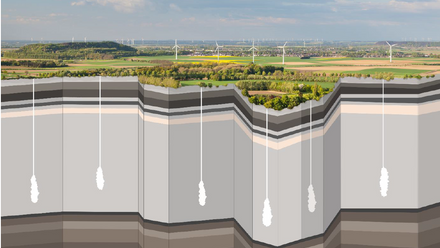Hydrogen heat networks: England’s clean heating future

The UK government has taken a major step towards decarbonising heating with the announcement of England’s first-ever heat network zones in six towns and cities.
These zones, located in Leeds, Plymouth, Bristol, Stockport, Sheffield, and two areas in London, will pioneer innovative heating solutions that combine energy efficiency with sustainability.
Hydrogen-Powered Innovation
Heat networks are designed to recycle excess heat from sources like data centres and factories, and hydrogen could play a pivotal role in boosting the efficiency and scalability of these systems. As part of the broader clean energy strategy, hydrogen is increasingly recognised as a versatile energy carrier capable of decarbonising both industrial processes and heating.
The heat network zone in Leeds will capture excess heat from a glass factory to warm nearby buildings.
Driving Net Zero
The establishment of these heat network zones aligns with the UK’s commitment to achieving net zero by 2050. Heat networks are particularly effective in urban areas, where their ability to provide low-carbon heating at scale can significantly reduce greenhouse gas emissions. As hydrogen infrastructure develops, its integration with heat networks offers an opportunity to cut emissions even further.
Minister for Energy Consumers, Miatta Fahnbulleh, highlighted the importance of these zones:
Heat network zones will play an important part in our mission to deliver clean power for the country, helping us take back control of our energy security.
Economic and Social Impact
The development of these zones will generate tens of thousands of green jobs across engineering, planning, and construction, bolstering the UK’s green economy. Hydrogen technology will likely contribute to this job creation, with roles emerging in hydrogen production, transportation, and integration into existing systems.
These projects are also expected to attract significant private investment.
A Global Blueprint
The knowledge gained from these pilot zones will guide future efforts to expand heat networks across the UK. As hydrogen adoption accelerates, these zones could become global benchmarks for integrating hydrogen into district heating systems, demonstrating the UK’s leadership in sustainable energy innovation.
Read more: Six towns and cities to pilot clean heating innovation

![Steel [canva]](https://www.igem.org.uk/static/50be7f75-c475-4a0a-9980bc2553030d23/resourcegridlistingimagedefault_4d12532919c64e60a22baf03232bbf94_4a7c7e45a350/Steel-canva.png)

![Mountains [canva]](https://www.igem.org.uk/static/0d138f41-6894-416a-b2ecb49adeb8ba37/resourcegridlistingimagedefault_4d12532919c64e60a22baf03232bbf94_4a7c7e45a350/Mountains-canva.png)


